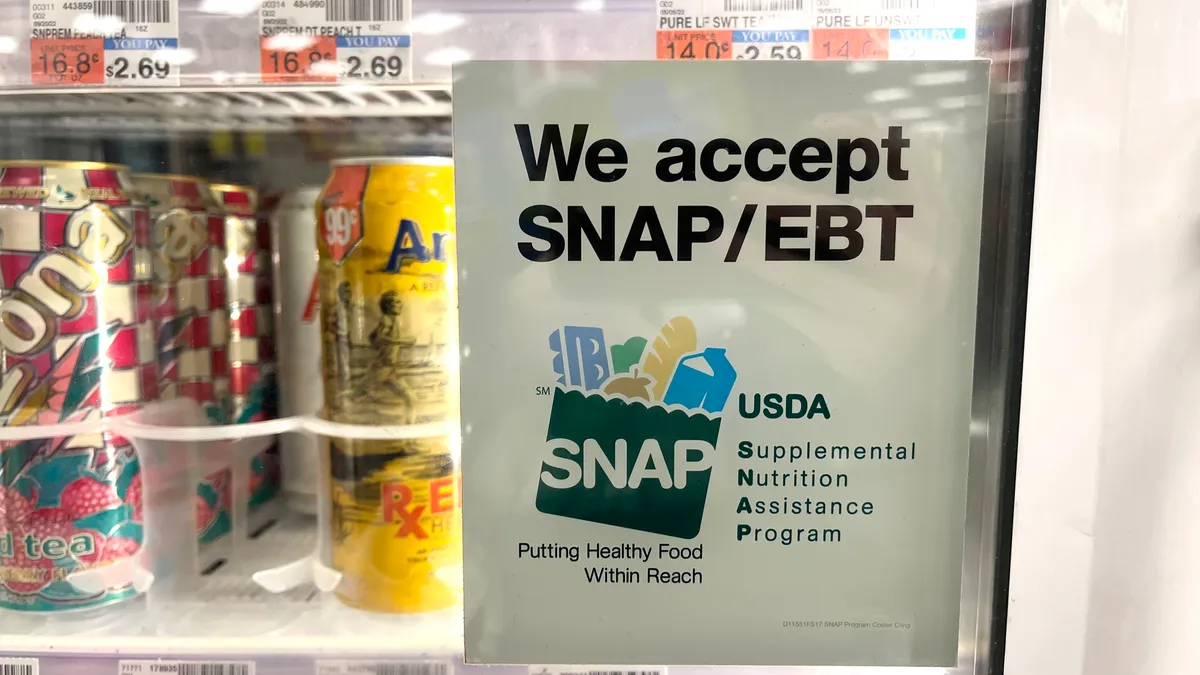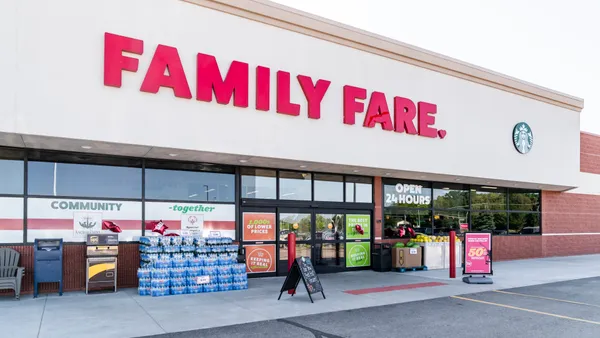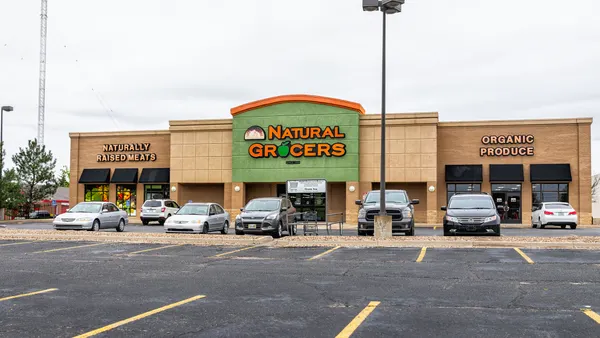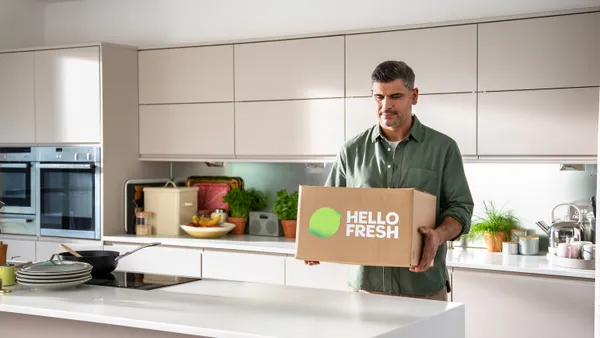Dive Brief:
- SNAP households tend to outspend their non-SNAP counterparts, paving the way for the federal benefit to drive growth for several food and beverage categories throughout 2025, according to a recent Circana report.
- For the first time in recent years, Circana found that the increase in SNAP shoppers’ spending was stronger for private brands than for name brands.
- SNAP’s accessibility continues to grow as retailers and third-party e-commerce providers make EBT payment options more available to consumers both in-store and online.
Dive Insight:
SNAP households spend 32% more per person than households not receiving the government benefit, per the report, despite the fact that this fiscal year was the first since the COVID-19 pandemic when SNAP participants did not receive extra allotments, Sally Lyons Wyatt, global executive vice president and chief advisor at Circana said in an interview.
SNAP shoppers also make 22% more trips to the store than non-SNAP households. And while their trip frequency is higher, SNAP participants spend less per visit than non-SNAP shoppers. However, SNAP consumers skew higher on food and beverage spending, underscoring that “the importance of SNAP is incredible,” Wyatt said.
Circana’s recent “Understanding the Resilience of SNAP Shoppers” report is based on a receipt panel of 175,000 households that made a minimum of 26 grocery trips using EBT at least once a month over a 52-week period that ended Sept. 8, according to Wyatt.
The receipt panel is based on EBT card usage captured as part of [Circana’s] receipt processing, “making it possible to identify receipts that indicate SNAP benefits were used for some portion of the basket,” according to the report methodology.
While SNAP shoppers still have more affinity towards national brands, Circana recorded the largest uptick in private label reliance with SNAP dollars in recent years, Wyatt said. This highlights grocers’ ongoing efforts to use private label brands as a way to convey value and quality to customers has influenced their SNAP shopper base.
With the reliance on name brands and private label brands currently elevated for SNAP shoppers, Circana advises grocers to co-promote “occasion deals” that include both private label and national brand items. This approach will help to increase SNAP participants’ basket sizes while keeping value messaging strong, according to the report.
The report noted that performance differs depending on the category of goods, posing different opportunities for appealing to SNAP consumers. For example, refrigerated products such as meals, desserts and baked goods are losing both dollar sales and trips, meaning retailers should carefully watch pricing and precisely time promotions. Meanwhile, multicultural offerings, meat and baby food are seeing increased dollars and units, indicating grocers can incentivize purchases of multiple units.














